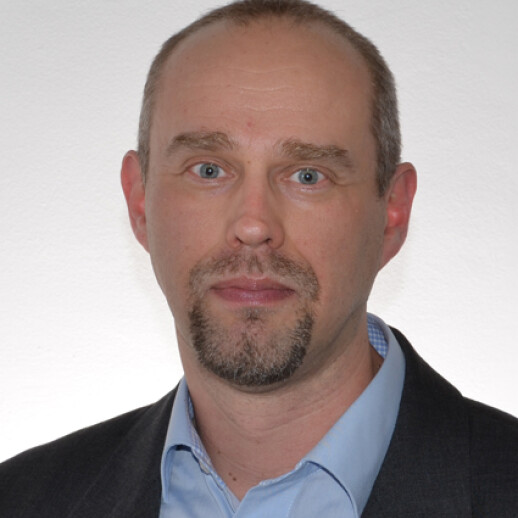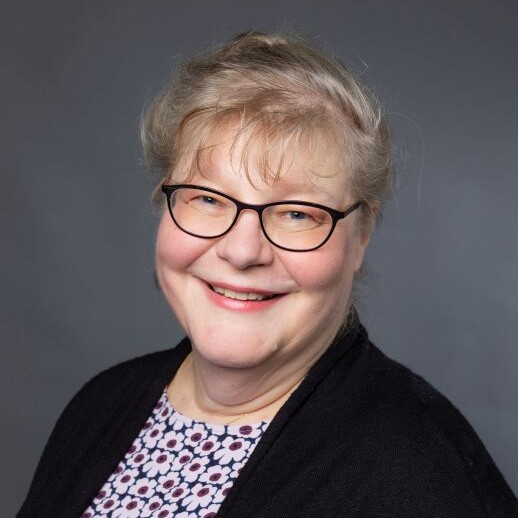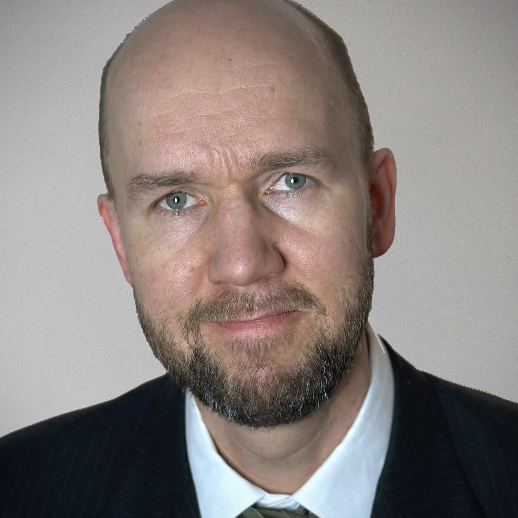Development of Higher Education
The terms social engagement and social dimension entail various discourses aimed at developing higher education to be more connected to the surrounding society and the world of work. Our viewpoints on development are university pedagogics and teacher conceptions of learning and teaching.
We participate in capacity building in higher education in the following topics:
- Entrepreneurship
- University-business collaboration (UBC)
- Technology Enhanced Learning (TEL)
- Work-Based Learning (WBL)
- Quality
Lifelong learning and university pedagogics
BALANCE – Digital work – life balance
The measures enacted to stop the spread of the pandemic have had a major impact especially on women, their well-being and mental health. The BALANCE project (Erasmus+, 11/2021 – 10/2023) is supporting and equipping women and their workplace leaders to better manage work-life balance in an ever-changing working world.
The project is creating an online space for women affected by the pandemic to share their stories to create an environment of support and encouragement which many women are currently lacking. Also a “Better Balance” guide and course that will contribute to increased wellness, productivity, and employee satisfaction will be developed.
The partners of the project are six universities and other education organisations working with adult education from Denmark, Estonia, Finland, Greece, Ireland and Spain.
The project is funded by Erasmus Plus -programme, Cooperation partnerships in adult education. The project is coordinated by Tallinn University from Estonia.
Contact Matti Lappalainen ja Timo Halttunen for more information.
More: https://projectbalance.eu/
UNI-Tel - Modernization and Internationalization of Iranian HEI's via collaborative TEL-based curricula development in engineering and STEM
The aim of the project is to support the modernization and internationalization of engineering and STEM curriculum in Iranian universities. According to research, student's have poor capacity in self-directed learning. Teachers use teaching methods that emphasise lecturing. The infrastrucure of open and distance learning needs also improvement.
UNI-Tel will support the Iranian universities in the development of an integrated training path combining technology-enhanced learning methodologies, interactive remote laboratories and collaborative learning methodologies. In the project there are 7 universities and an IT company from Iran. European project partners come from Italy, Greece, Portugal and Finland.
The project is funded by Erasmus Plus -programme, Key Action 2, capacity building in higher education. The project is coordinated by Guglielmo Marconi University from Italy.
Contact Matti Lappalainen, Kaisu Paasio and Timo Halttunen for more information.
More: https://unitelproject.net/
![]()
COMPASS - Moldova Towards European Universities Lifelong Learning Model
The project is aimed at developing an European model of lifelong learning in Moldovan higher education. The universities develop strategies for lifelong learning and update national legislation to make lifelong learning a reality in Moldova.
Development work in Moldova is facilitated by 8 european universities from Spain, Austria, France, Estonia and Finland.
The project is financed by Erasmus+ programmeKey Action 2, capacity building in higher education. Read more information in the project website: http://www.compass-project.md/
Contact Vesa Hautala, Tiina Anttila and Timo Halttunen for more information.
![]()
Imaginarium project introduces creativity using Design Thinking and Futures Thinking methodology to enable a proactive search for possible development solutions for tomorrow. Creating solutions from the point of view of the possible future is becoming a necessity today. Young people are ensured that designing the future is, on the one hand, a search for opportunities and potential, and on the other hand, initiating systematic and purposeful practical solutions, aimed at responding to uncertainty. Youth workers are supported with the research, materials and tools to introduce Futures Thinking and Design Thinking as regular creative ways of thinking, adapted to the new realities.
The Imaginarium project is an Erasmus+ project in the Key Action Strategic Partnership for Adult education.
Visit project website: https://imaginarium-toolbox.eu/
Please contact Vesa Hautala for further information.
![]()
The project develops pedagogy that enables university teachers to support students' preparation for various professional situations in working life, and it has a specific focus on entrepreneurship education. PROMISE promotes the working life orientation of education and supports the growth of students into experts.
University of Turku coordinates the three-year project that was launched in December 2022, involving universities from Spain and Austria, as well as partners from Denmark and Ireland. The project is funded by the Erasmus+ programme of the European Union.
For further information of the project, please contact Kaisu Paasio, Kia Lundqvist and Timo Halttunen.
![]()
Recognition of prior learning, or validation, is one of the key educational policies in the European higher education area. Validation is even more commonly practiced in Vocational Education and Training (VET) institutions. The Nordic countries are among the regions where validation is most developed in Europe, and even globally. How are future vocational teachers prepared for this practice? Validation in VET teacher education curricula is a Nordic research project, where we examine this question by studying curricular texts from higher education institutions offfering vocational teacher education programs in Finland, Sweden and Denmark.
University of Turku and the Brahea Centre is the coordinator of the project. Haaga-Helia UAS and Oulu UAS from Finland, Linköping University from Sweden and VIA University College form the partnership of the project.
The project is financed by Nordplus Adult programme.
CDTMOOC
CDTMOOC promotes open education and innovative practices in a digital era thanks to an interactive MOOC based on gamification approach together with digital guides describing innovative methodologies from a practical point of view.
The project aims at disrupting the learning environment through innovative pedagogies. In fact, the project is about using different methodologies such as Creative Problem Solving, Design Thinking and Human-Centered Design to support modern entrepreneurship, to stimulate a change after an intensive Pilot Testing period.
CDTMOOC is a project funded by the European Commission under the programme “Erasmus+ – KA2 – Strategic Partnerships for higher education”
Contact Kaisu Paasio and Tuomas Ranti for more information.
![]()
KUTEL
KUTEL - Kazakh Universities to foster quality assurance processes in Technology Enhanced Learning
The aim of the project is to develop quality assurance of Technology Enhanced Learning in higher education institutions in Kazakhstan.
The project consortium consists of 8 universities, a non-governmental organization and the ministry of education from Kazakshstan. The European project partners come from Italy, Greece, Bulgaria and Finland.
The project is financed by Erasmus+ programme, Key Action 2, capacity building in higher education. Read more on project website: https://www.kutel-project.eu/
Contact Matti Lappalainen, Heli Brander and Timo Halttunen for more information.
![]()
STUNED
STUNED - Standards Teaching in University Education
Companies and public organisations are taking different standards and quality management systems into account in their actions. There are e.g. specific guidelines for sustainable development. Organisations can also utilize quality management systems in customer relationship management. However, university graduates often have only little knowledge about quality management systems and standards.
In the STUNED-project we are developing university teaching on quality management systems and standardisation. The project partners consist of universities and standardisation agencies from Bulgaria, Finland, Greece, Latvia and Romania.
Contact Matti Lappalainen and Kirsti Haihu for more information.
![]()
TEAVET
The project aims at raising competencies of in-service teachers at the non-tertiary education level by building a high quality Vocational Education and Training (VET) system for teachers.
The project has developed e.g. a new strategy of teacher training, new expertise and standard of teacher training, specialized centres for teacher training, and new training courses. In addition, digital structures are developed for training delivery.
For more information visit the project website: https://teavet.org/
![]()
He4U2 - Higher Education for You Too
There is a clear need for training teachers working with migrant students, to reform the delivery of support for these learners, integrating at the same time an intercultural dimension for all learners.
HE4u2 project developed an approach to the intercultural dimension of existing curricula, a generic CPD courses for staff, and a set of policy recommendations focusing on the curricula and the teachers of adults in HE, who often provide access for disadvantaged groups, are student-centred, have specialised support and are linked to regional agencies.
Read more about the project in the website.
![]()
University-Business Collaboration
HEI LIFE – Higher Education Institutions’ Support for International Academics and Staff – Living, Intergration, Family and Employment in Finland
HEI LIFE focuses on building national models for Finnish higher education institutes to support the integration of international academics, staff and their families. The project is funded by the Ministry of Education and Culture, and runs from 1.9.2020 until 31.8.2022.
The project is managed by the University of Helsinki. The activities are divided between the higher education institutes in the capital, Tampere and Turku regions. Each region is in charge of a sub project, focusing on different aspects of integration.
Main goals:
1. National welcome package for international academics, staff and families. Contact HEI: University of Tampere
The national welcome package will include information and material that supports individuals arriving to work for Finnish higher education institutes and their families. The material offers support for immigration, settling-in and integration, as well raising cultural awareness within the HEI community. The material supports the information needs of the other two sub projects.
2. Integration of international researchers and staff to Finnish working life and innovation environment. Contact HEI: University of Turku
The sub project focuses on strengthening company collaboration for international researchers and other staff by piloting a mentoring programme and developing new models for collaboration. One goal is to create a network model for international talent, that would allow the talent to build work life networks and share experiences and knowhow regarding career building and Finnish working life.
3. Integration of the spouses and families of international academics and staff into Finnish society in cooperation with cities, business and NGOs. Contact HEI: University of Helsinki
The sub project’s goal is to build a service tray with several types of services that Finnish HEIs can create or use to support the integration of spouses and families. The sub project focuses on creating services and support models for information, employment and networking. The information needs will at least partically be covered by the national welcome package created in the first sub project.
Contact persons at the Brahea Centre are Kia Lundqvist and Timo Halttunen.
Inclusion into Academic Life - a Guide for Peer Support Groups in Higher Education
SMILE - Social Meaning Impact through LLL Universities in Europe
The project aims at developing and implementing innovative methods and practices to foster inclusive education and promote common values. Promoting inclusive education and training and fostering the education of disadvantaged learners, including through supporting educational staff in addressing diversity, and reinforcing diversity among education staff.
The project has three main pillars of development:
- migrant background
- women in leadership
- socio-economic factors
In the project University of Turku is in charge of coordinating a work package focusing on socio-economic factors. UTU will be also taking an active part in the development and testing of SMILE tools. One tool of great interest to universities will be a self-assessment tool for HEIs to analyze how the HEI is doing in terms of inclusion of diversity, and to make the HEI reflect on how to consolidate a diversity-oriented university culture that perceives diversity as an opportunity and enrichment while at the same time faces the challenge of dealing with heterogeneity.
The project is coordinated by the European University Continuing Education Network (eucen), which is an international non-governmental, not-for-profit association founded in 1991.It currently has 170 members in 36 countries, all of them universities actively committed to and involved in the development of University Lifelong Learning (ULLL).
Contact Kia Lundqvist and Timo Halttunen for more information.
![]()
EntrAL - Entrepreneurial skills for a modern education in Albania
In Albania, despite an increase of entrepreneurs and self-employed among youth graduates, the unemployment rate shows that there is a need to improve the quality and relevancy of education. The EntrAL project supports the employability of young graduates through entrepreneurship education.
The project will use existing structures to reinforce the link between institutions and business focusing mostly on start-ups and SMEs by developing entrepreneurial education to university students. Entrepreneurship studies will directly enhance university graduates' skills and motivation to start to become entrepreneurs. The project will make sure that all genders are enrolling into the course through active marketing.
Visit project website: https://entralproject.eu/
Contact Vesa Hautala for more information.
![]()
European Career Help and Occupational Orientation Play (ECHOO Play): The project is about innovation in VET and aims at developing, testing, adapting and implementing innovative and engaging practices and methodologies in VET education system via a gamification. The project supports effective career identification and empower occupational orientation. (EU) UTU will take part in all activities and is responsible for conducting research about the methodological and pedagogical approach used during the project implementation to introduce two different gamified approaches to the career help and occupational orientation.
The project is coordinated by MSS, Iceland.
Contact Céline Kylänpää for more information.
![]()
Strengthening the QUAlity and RElevance of the 3rd mission in Georgian Universities (SQUARE): The project aims at improving the quality and relevance of 3M in Georgian HEIs. It acts at different levels by securing support and encouragement for the regulatory bodies in favor of 3M and includes it as an integral role of the universities. It puts in place the necessary conditions to increase the relevance of activities through adequate strategic planning, and their quality and impact through efficient implementation and monitoring. (Georgia).
The role of UTU is to train the partners on Third mission and present good cases from Finland, as well as support the evaluation of the 3M impact at university level.
Contact Céline Kylänpää and Vesa Hautala for more information.
![]()
IMPROVE - Innovative Methods and PRactices on VET
Recent studies indicate that vocational education and training (VET) needs to create new pedagogies to improve students' knowledge, skills and competences for innovation in the labour market. Theby the project promotes innovative practices and tools in VET, in order to encourage people to consider VET as an important choice on their professional path. By introduction of alternative and successful methodologies to the learning environment, the project aims to create successful experiences in job-oriented learning and provide learners with skills that are necessary for self- employment or employment.
Read more from the project website.
Contact Céline Kylänpää for more information.
![]()
ApprEnt - Refining Higher Education Apprenticeships with Enterprises in Europe
High rates of youth unemployment and a mismatch between current skills requirements and existing academic curricula have prompted the need to promote and expand work based learning and apprenticeships programmes in Europe. The ApprEnt project (15 October 2017 - 15 October 2019) has promoted the establishment of work-based learning and especially apprenticeship schemes in higher education sector.
The project has developed e.g. a training model for mentors and supervisors, guidelines for HEI apprenticeship model agreement, advocacy pack and recommendations. .
Brahea Centre partners in the project with Federation of Finnish Enterprises in South-West Finland.
Read more in the project website: https://apprent.eucen.eu/
![]()
VET-Eng - Blended Vocational-Engineering-Industry Shared Learning Environment for Stream of Socially- and Technically-Competent Technicians and Engineers
University graduates need social skills and professional knowledge to solve problems in the workplaces. In the project higher education sector and vocational and training (VET) sector developed project-based learning and teaching metholds in collaboration. By engaging learners from both sectors to solve working-life oriented problems together already during their studies, the Egyptian universities, training institutions and social partners foresee that learners would be more able to work in collaboration when they graduate and move to the labour market. European partners from Italy, Germany and Finland facilitated the development work in the project.
More information from the project website.
![]()
InnovatiVET
What is industrial currency of Vocational Education and Training (VET) teachers and how they can develop their pedagogies to be more industry-relevant? The project aims to develop, deploy and discuss how experiments and experimentation could contribute to renewal and innovation in educational practice.
The project has developed e.g. a report on emerging needs for development of VET, a toolkit for work-based learning, a toolkit for creative problem solving and design thinking and a toolkit for co-working and FabLab.
The project is financed by Erasmus+, Key Action 2, strategic alliances in develoint adult education. For more information, visit the project website: https://www.innovativet.eu/
![]()
Courses for University Students
The Innovation and Business Creation study module contains courses providing students with the fundamentals of new venture creation and business development. Furthermore, they learn to apply knowledge about innovation and business management in different settings and situations. Besides the knowledge and skills, these studies are targeting to facilitate business and entrepreneurial mind-set and behaviour. The module helps the students to understand and exploit the innovation potential of their own discipline by providing them with skills to recognise, create, evaluate and exploit business opportunities.
The study module is targeted mainly at students of Science and Engineering. It is also suitable as minor study for other than business students, who are interested in innovation and technology-driven business, and are starting their own business or working entrepreneurially in any kind of organisation ranging from small companies to large enterprises. Students of specific Master’s programmes at the Faculty of Science and Engineering in which the study module is optional minor study, have priority to the module. Students can also participate some courses separately.
For more information, see Study Guide Peppi.
Challenge Turku - Innovation camp
Higher education students in the Turku region are invited to innovate new business possibilities in an intensive, hands-on challenge within a 24 hour time limit. Devided to work in teams, students are working with a given, working-life oriented and authentic challenge. The camp is popular specially among international students and young expats in Turku.


